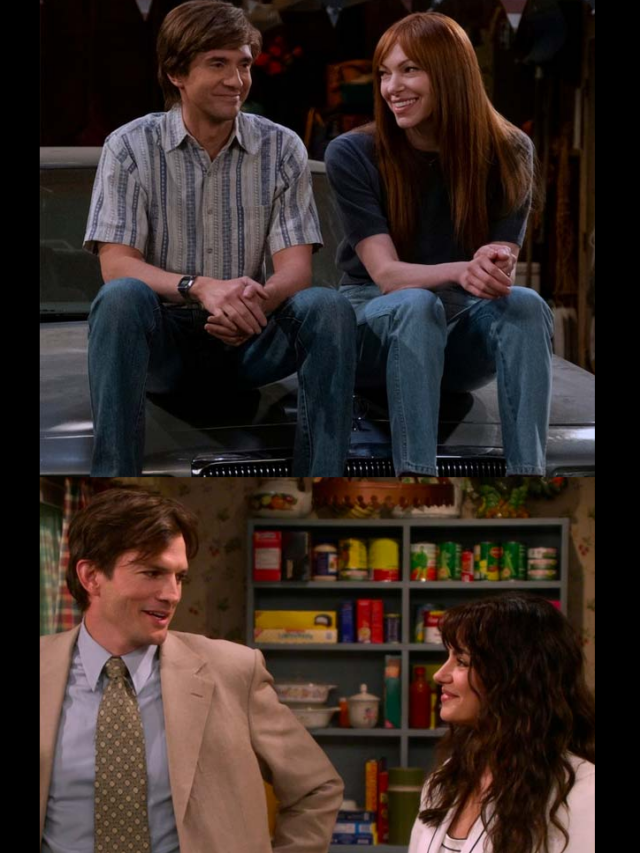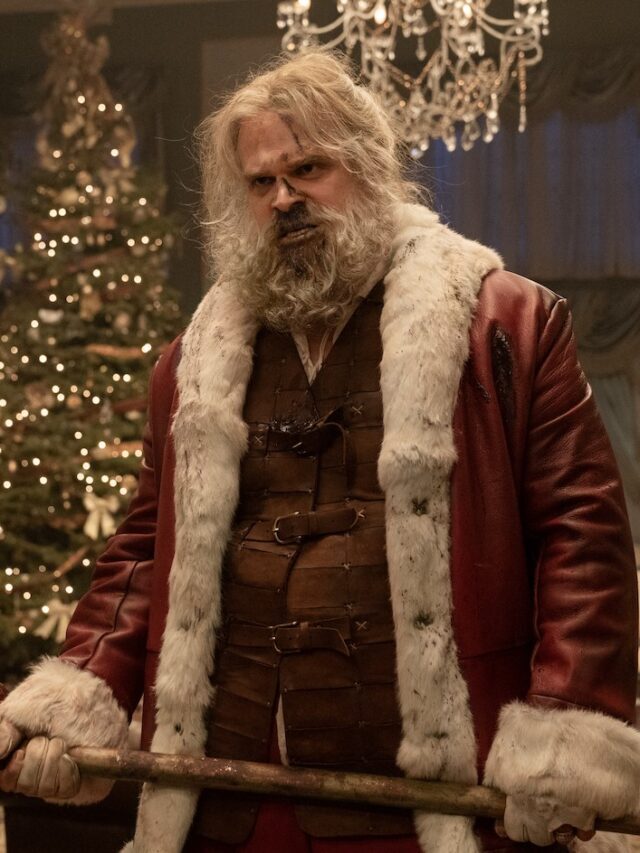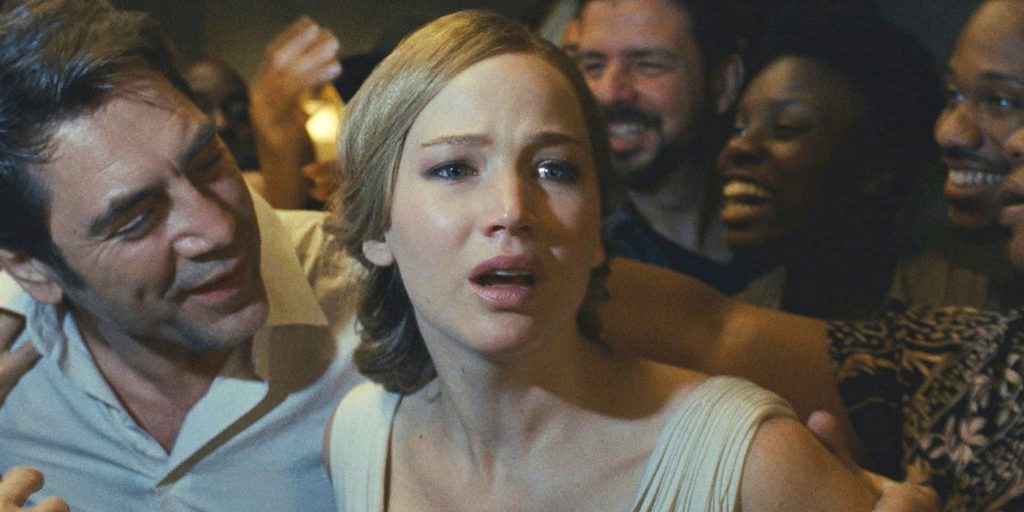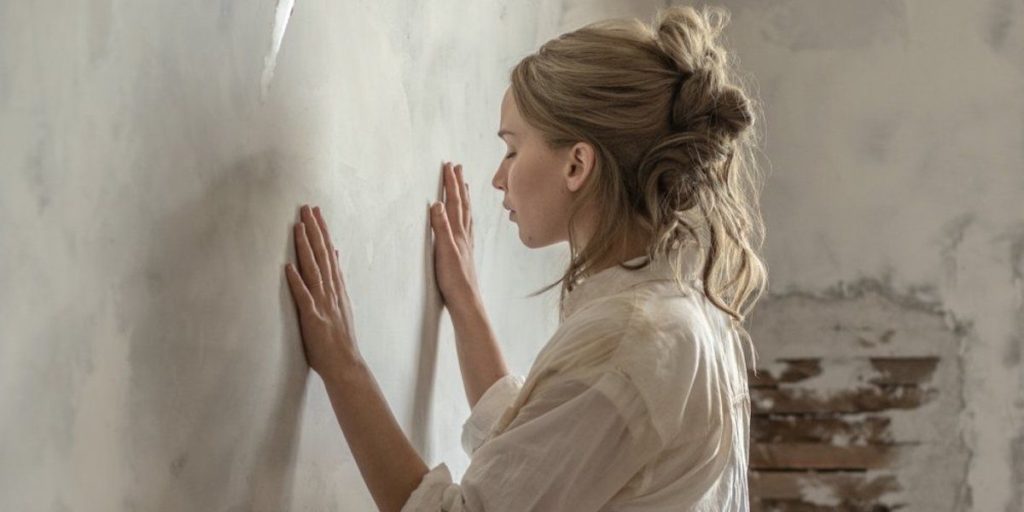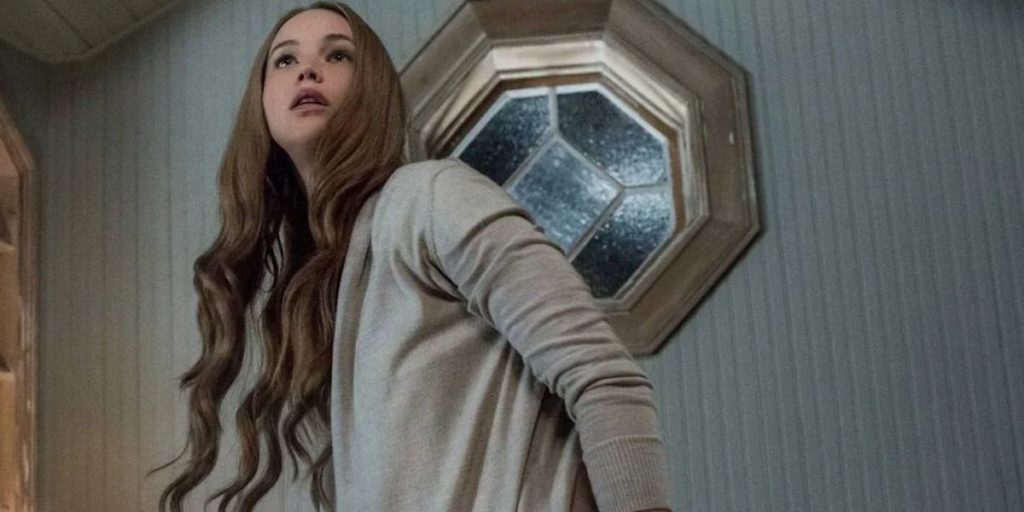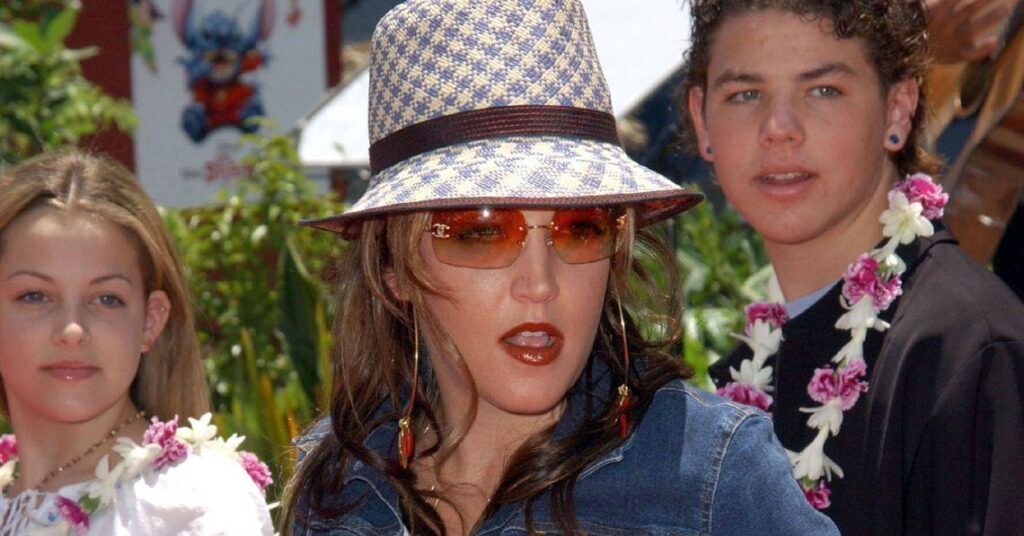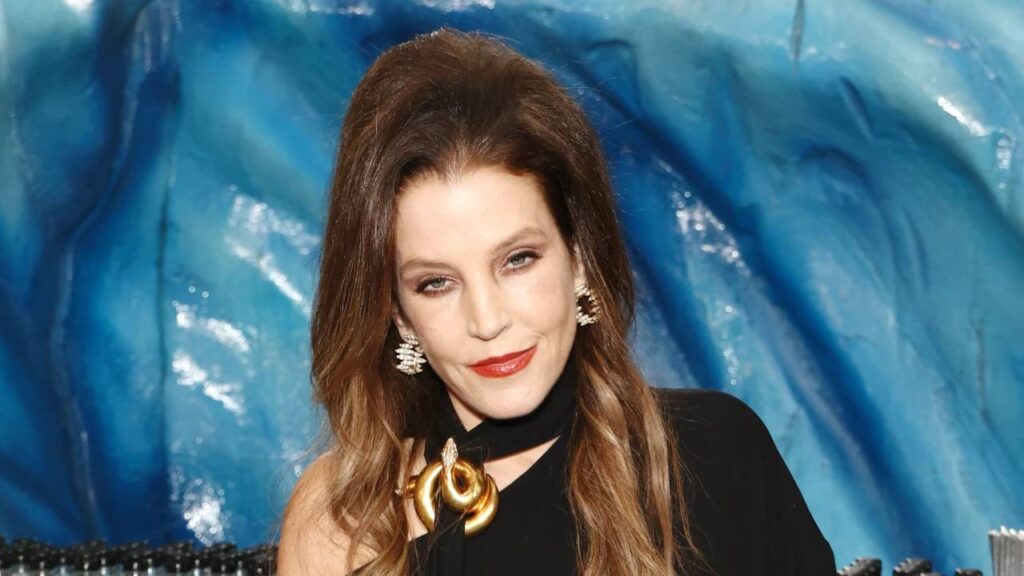Mother! by Darren Aronofsky is sure to be one of the most contentious movies of the year. Aesthetically aggressive film that isn’t quite the psychological horror it’s touted as and definitely not in the manner of Rosemary’s Baby beyond showing a stressed-out pregnant woman eschews traditional storylines and character, but that’s only the tip of the iceberg. However, mother! can be somewhat perplexing to say the least because it follows dream logic and is so heavily reliant on symbolism and tone as opposed to character and storyline. The best thing I can say about mother! is that it’s the kind of movie that will get you chatting to your friends later. The movie welcomes discourse.
Here’s my perspective, though, if you’re still not entirely sure or just want something different to think about. If you haven’t seen the movie, stop reading now.
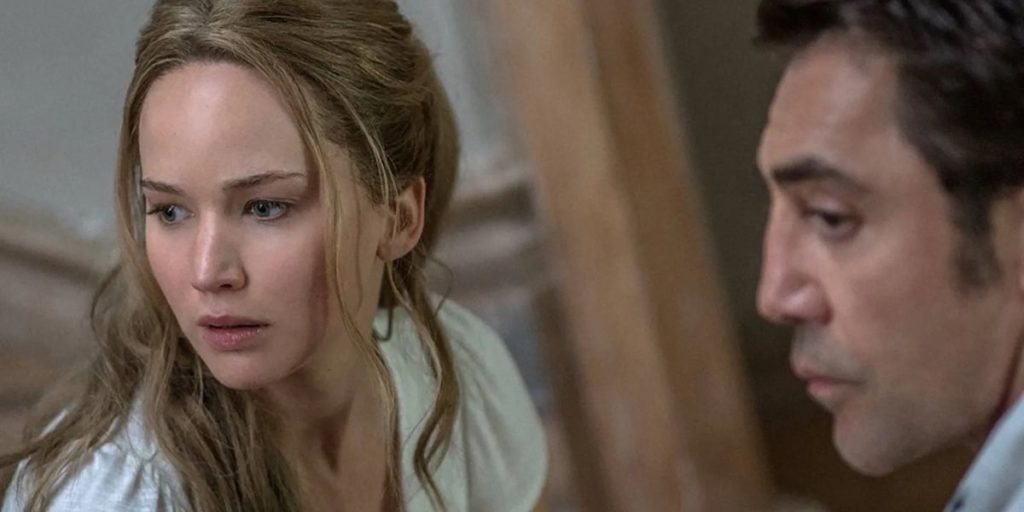
The character of Ed Harris is Adam. We see an injury as soon as he starts to vomit in the restroom, exactly where his rib should be. His wife (Michelle Pfeiffer), who is playing Eve, appears in the next scene. The poet’s office is particularly forbidden for them to enter, but despite being clearly instructed not to, they go there anyhow, where Eve unintentionally destroys the fire crystal. In order to symbolise original sin and man’s fall from grace upon eating the forbidden fruit from the tree of knowledge in the Garden of Eden, they are then banished and soon start having intercourse elsewhere in the house.
Then the Gleeson family’s sons (Brian and Domhnall) arrive and start quarrelling over their dying father’s will. One brother kills the other during their argument (Cain and Abel). The surviving brother flees while the poet, parents, and dead brother are carried out of the house. Later that evening, the poet and the parents return for a wake, and as more people arrive to mourn, the wake quickly devolves into a raucous party where, despite repeated requests not to sit on an unbraced sink, the sink eventually comes loose from the wall, drenching the house with water. As a result, humanity perished after Abel was killed and finally the world was flooded.
The mother warns the poet that he won’t even have sex with her when the water floods the house and the visitors have left. After having intercourse, she announces she is pregnant the following morning. Then, after experiencing a moment of inspiration, he walks downstairs unclothed to write. She views a vision of a revitalised planet when he shows her the finished result and declares it to be lovely. Though she had arranged a nice, quiet supper for her and the poet, a crowd of people overwhelms the fully pregnant mother as they enter their home once more.
The narrative is now sort of shifting away from the biblical text and toward more of the historical record. The Mother goes through a horrible journey surrounded by war, human trafficking, and other nightmare images before the Poet eventually returns and takes her to his private office so she can give birth to their son, which is the New Testament portion of the story. Before the advent of the messiah figure, God appears to have abandoned the Earth for extended periods of time, according to this parable.
Then, as they worship at a shrine to the poet, humanity messes everything up once more by stealing the baby, killing it, and eating its flesh. The Mother is then attacked, having her clothes torn off and being beaten mercilessly before she manages to flee, go downstairs, bust open an oil drum, and light the entire house on fire. Therefore, even when given a rescuer and complete innocent, mankind merely kills, consumes the flesh of the Messiah (i.e., communion), then attacks Mother Earth with God still absent, and Mother Earth finally utilises oil (i.e., fossil fuels) to destroy herself and humankind with God unable to intervene.
The poet then takes the mother’s burned body and uses his hands to extract her pulsating heart. She disintegrates into ash, and the scorched heart transforms into a new fire crystal. A woman awakens in their bed as the fire damage is undone when the new fire crystal is placed in its holder, sending the audience back to the opening of the movie. Only this time, a different young woman awakens in the bed instead of the same one. In other words, the Earth and humanity will perish, and best case scenario, God will just start the process all over again since he must create and longs for love from his creatures.
Additionally, as the Mother becomes overwhelmed throughout the movie, she will halt, touch the walls of the house, and have a vision of a heart that is gradually dying. In addition, the house keeps bleeding, cracking, and crumbling. The idea that Mother Nature is aware of the environment’s demise is strengthened by this, especially when more people enter the home and create turmoil.
None of this should come as a surprise given that director Darren Aronofsky is an ardent atheist and environmentalist, and that his previous picture, Noah, explored humanity’s fall from grace in the face of a global environmental catastrophe and the absence of God.
To be fair, not everything in the movie matches up exactly, especially in the second half, and not everything corresponds to the entire Bible or to human history. What does it indicate that Ed Harris’ character is a doctor? Maybe, though I’m not sure what. Why does the birth of the messiah figure occur before all the conflict and upheaval rather than after? Isn’t the New Testament rife with conflict and anarchy on both sides? The God portrayed here isn’t the only conception of a supreme being, but for Aronofsky, it is how he sees God: as a being who, despite mankind’s horrific behaviour and the torture Mother Earth receives, continuously feels the desire to create and to be loved.
There are also unfinished business that I am unable to resolve or determine if they really have any significance. The yellow liquid that Mother continues consuming is not clear to me. When the Mother calls (who does Mother Earth call in the event of an emergency? ), 911 never answers. Although there are still some unanswered concerns, I feel rather confident based on what I’ve read that the film is about the relationship between God, Mother Earth, the environment, and humans, with Aronofsky taking the position that humanity is a scourge on the planet.
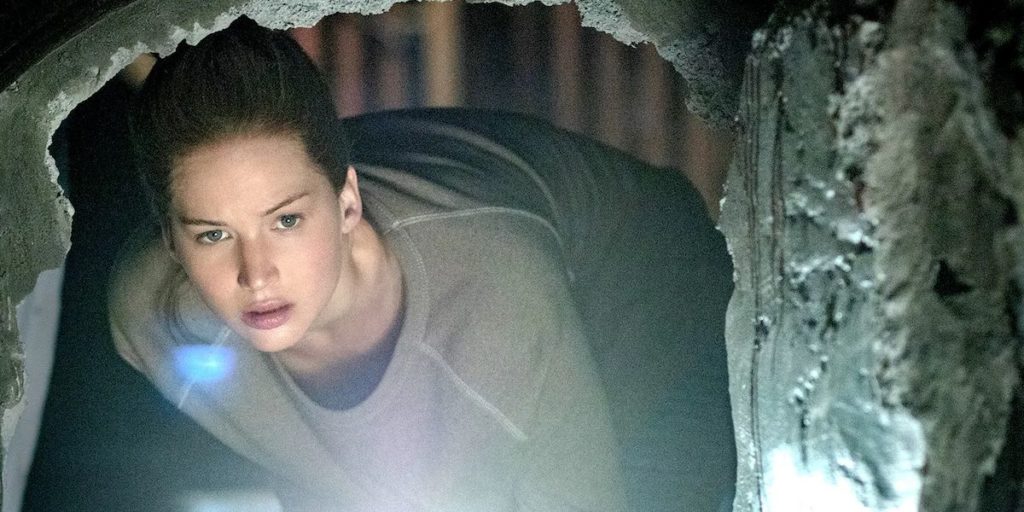
Another interpretation of the movie treats both Aronofsky and Lawrence as semi-autobiographical figures. The Poet is a little old for the Mother, Pfeiffer’s character first remarks. Lawrence is 27 and Aronofsky is 48. The aforementioned similarity between Aronofsky and the god figure is present as well as his dissatisfaction at being idolised by people as well as the dread their unceasing devotion inspires. Then, you can mention how after Jennifer Lawrence’s nude images were stolen from her phone and posted online, she later told Vanity Fair that the theft was a “sex crime,” which is when the Mother is attacked and having her clothes torn from her body. But once more, this interpretation does not take into consideration the whole movie or the overarching allegory.
Not that art can only have one interpretation or that my reading of mother! is the only legitimate analysis of the movie. But if you disagree, I have one more point to add: I do think that my case has the most evidence to back it. Examine the title.
Being a binge-watcher himself, finding Content to write about comes naturally to Divesh. From Anime to Trending Netflix Series and Celebrity News, he covers every detail and always find the right sources for his research.

